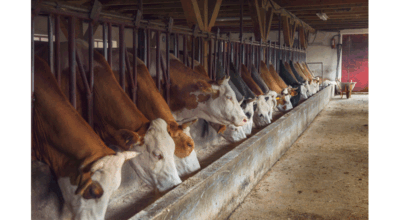Producers meet with legislators on agricultural issues
Published 11:26 am Wednesday, February 8, 2017
RICHMOND
Gary Cross, president of the Southampton County Farm Bureau, was among the local growers who met with Virginia legislators recently to speak about agricultural issues.
For example, the Virginia Farm Bureau urged legislators to support amendments to HB2030, sponsored by Del. Nicholas Freitas (R-30), which exempts a producer of food, including milk, products made from milk, and poultry, from regulations of the Board of Agriculture and Consumer Services so long as the sale of such food by the producer is made directly to the end consumer; the sale is conducted at a farmers market or through a home or farm; the food product contains no uninspected meat other than poultry; and the producer informs the end consumer that the food product is not certified, regulated or inspected.
The agency worked with the patron to narrow the scope of the bill and develop principles whereby requirements could be established by the Virginia Department of Agriculture and Consumer Services allowing for “regulated sales of raw milk.”
But as of Feb. 1, it was defeated in Agriculture, Chesapeake and Natural Resources (6-Y; 15-N).
Related to that matter, the Virginia Farm Bureau wants legislators to oppose HB2368, regarding milk production; exemption from oversight of the Milk Commission.
That bill, which is being sponsored by Del. Rick Morris (R-64), would exempt any person owning no more than three cows or three goats from the oversight of the Milk Commission and the requirements of the Board of Agriculture and Consumer Services governing the quality, grading and sanitary standards for milk, as long as the milk is sold directly to consumers and bears a label stating that the product has not been inspected by the state and that the consumer is purchasing the product at his own risk.
On Jan. 23, the bill was assigned to the Committee on Agriculture, Chesapeake and Natural Resources, specifically the subcommittee on Agriculture.
•••
Another example is the Virginia Farm Bureau urging legislators to support HB1519, which would allow farmers to carry slightly heavier loads of farm product from the field to the first place of storage. If passed, this would help make Virginia competitive with North Carolina.
The bill, sponsored by Del. Barry Knight (R-81), would expand overweight permits for hauling Virginia-grown farm products statewide; allow farmers hauling products from field or farm to storage or processing to carry up to 90,000 pounds gross weight; and excludes vehicles using the permit from traveling on the interstates with additional weight.
The bill is believed to be needed for the following reasons:
• Hauling farm products often can be a challenge in estimating the amount of weight being hauled from its first place of origin due to factors such as varying moisture content or the body mass of an animal.
• In the case of grains such as barley, corn or wheat, the higher the moisture in the air, the increase likelihood the loads would weigh more.
• Farmer’s don’t have scales in the field to be able to weight the truck before going on the roadway; they can only estimate. Often they leave the field believing they are well under the legal limit, but due to such things as humidity, they’re actually carrying more weight then they thought they loaded.
• North Carolina already allows trucks hauling farm or forest products from their place of origin to storage or processing to weigh up to 90,000 pounds gross with proper axle configuration.
• In 2015, the Virginia General Assembly created a permit that loggers could buy to carry up to 90,000 pounds gross weight.
As of Tuesday, it was read a third time and passed the house (97-Y; 0-N).
•••
The VFB wants legislators to support SB1195, which would authorize the Board of Agriculture and Consumer Services to adopt regulations to carry out the purposes of the federal Produce Safety Rule. The bill, sponsored by Sen. Richard H. Stuart (R-28th), provides an opportunity for farmers subject to the aforementioned rule to work with a state regulatory agency, rather than relying solely on FDA for education and assistance in becoming compliant with the new rule.
The PSR is part of the Food Safety Modernization Act and went into effect Jan. 4, 2011. It set federal minimum standards for the safe growing, harvesting, packing and holding of fruits and vegetables in order to continue to sell produce through interstate commerce.
On Feb. 1, the bill passed the Senate (25-Y; 15-N), and is in the House subcommittee on Agriculture, Chesapeake and Natural Resources).





